9 Solar Energy Myths and Misconceptions
-
Kristin Hitchcock
- Last updated:
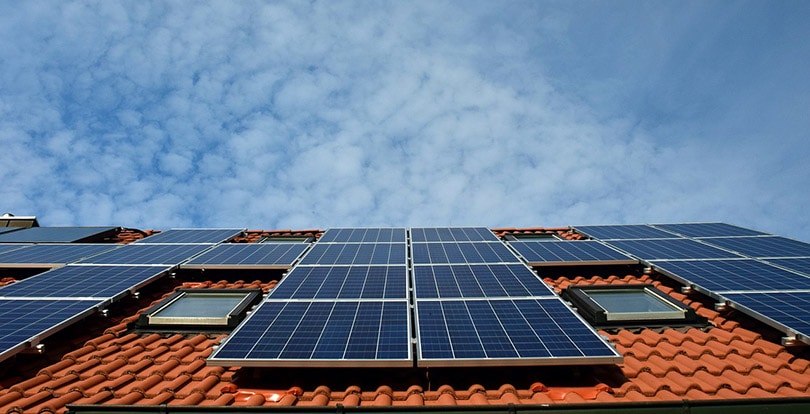
Solar energy has been a growing source of energy over the last few decades. However, in the grand scheme of things, it is relatively new, and therefore, misunderstood by many. In fact, there are quite a few misconceptions surrounding solar energy.
Without these misconceptions spreading, solar energy may be more widely available and used. Therefore, it is essential to educate yourself on the truth behind these myths and see solar energy for what it truly is.

The Top 9 Solar Energy Myths and Misconceptions
1. Solar Power Only Works When the Sun is Shining
Solar power gets its energy from the sun. Therefore, it is sometimes believed that solar power only works when the sun is out and shining. If this was true, solar power would be completely useless on cloudy and rainy days.
However, you can use solar power in any conditions. Some solar energy is always reaching the earth during the daytime. If it wasn’t, then it would be completely dark. In fact, solar energy seems to work best in locations that are colder since solar panels are generally more efficient in colder climates—even if it’s snowing!
Plus, most solar panels are hooked up to batteries they charge during the day and at night, your home can run off of these batteries instead. Many are also hooked up to the main energy grid. Therefore, even if your solar panels fail, you can still get energy from the grid.
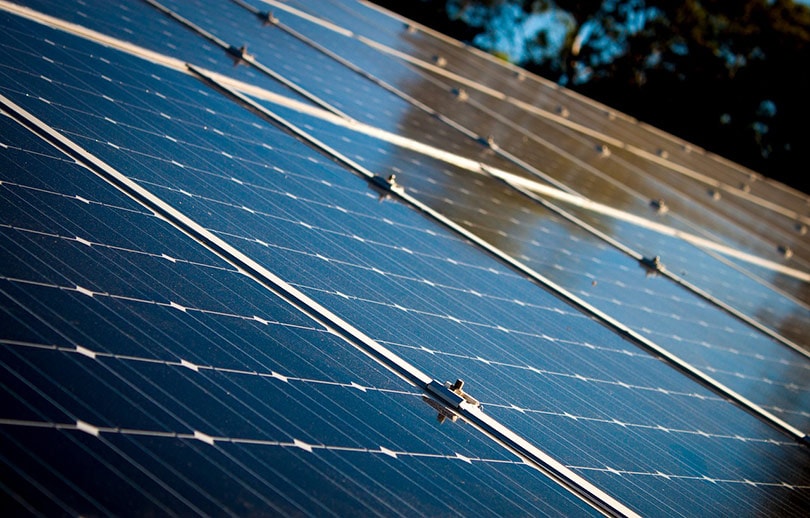
2. Solar Power is Extremely Expensive
Many people imagine that solar power is hundreds of thousands of dollars. However, you can get an effective residential system for as little as $15,000. You don’t even have to pay this at one time, either. Many companies offer payment plans, as do some government agencies.
Tax incentives also help you pay it off faster.
Plus, solar panels also require little ongoing maintenance. Once they are up, you don’t have to do much other than clean them once a year to maximize energy output. The costs are declining all the time too, so we expect prices to be even lower in coming years.
3. Solar Panels Aren’t Efficient
The average efficiency rate of solar panels is around 15%–22%. To most people, this sounds rather low. However, there are several reasons that solar panels cannot collect all of the sun’s light. Firstly, some light is reflected off of the solar panel, and some of it turns into heat instead of light. Plus, panels only collect a certain part of the sun’s rays, so it technically isn’t using all of the light that hits it.
Furthermore, you also have to consider that solar panels are working in the real world – not in a lab environment. Therefore, they are exposed to changes in temperature and environment that may affect their overall efficiency.
However, the sun produces an insane amount of energy. It takes only a fraction of the sun’s energy to power the whole planet for a very long time. Therefore, solar panels don’t have to be very efficient to produce plenty of energy.
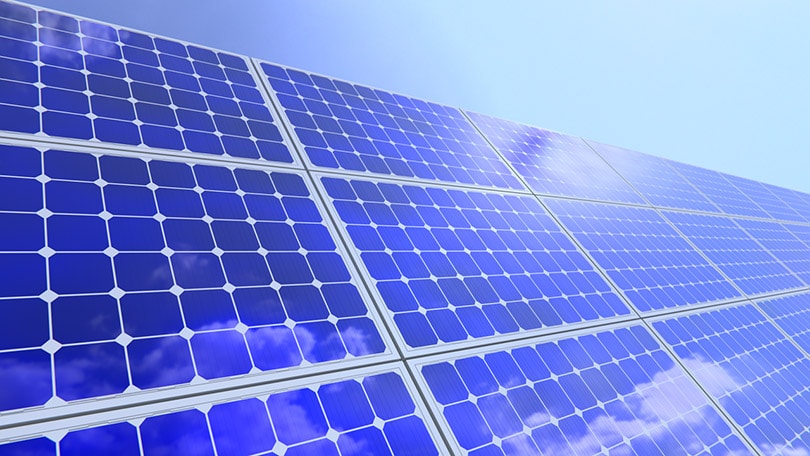
4. Solar Power Works When the Electricity is Out
Many people believe that solar will work all the time. However, this isn’t necessarily the case. If workers are fixing electricity lines that your solar panels are hooked up to, your inverter knows the grid has been shut off and will often block solar energy from entering your home.
Of course, this isn’t always the case. If the electricity has not been turned off in your area, then you will continue to receive solar power as usual.
5. Solar Panels Can Damage Your Roof
In reality, solar panels actually protect your roof by covering it up. Solar panels are quite durable, so they do a pretty good job of protecting your roof from the elements. Furthermore, solar panels can easily be popped off if they need to be. Usually, they are not mounted directly to the roof but attached to a mechanism that holds them slightly above the roof.
Therefore, you can change your roof while still utilizing your solar panels.
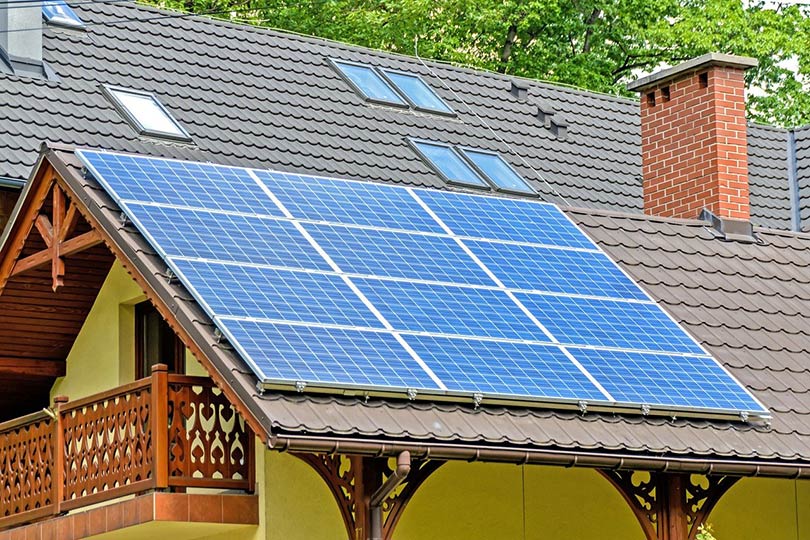
6. Solar Panels Lower a Home’s Value
We don’t exactly know why this myth become popular, but this is not true at all. Adding solar panels will usually increase your home’s value – not lower it. Adding solar panels often increases your home’s value by more than the solar panel cost, so you’ll end up with more money in the long run.
Plus, buyers can potentially reap tax benefits from owning a home with solar panels, which can potentially make it even more beneficial for them to buy the home.
7. Bigger Homes Need Bigger Solar Panels
People often assume that bigger homes will need bigger solar panels. However, this isn’t always the case. It is mostly about the amount of energy you use. Your location will also need to be considered. Sometimes, factors like the slope of your roof may also determine the solar panels you need. There is a lot that goes into it, and you usually can’t determine the size you need on your own—instead, you’ll need to speak to a professional.
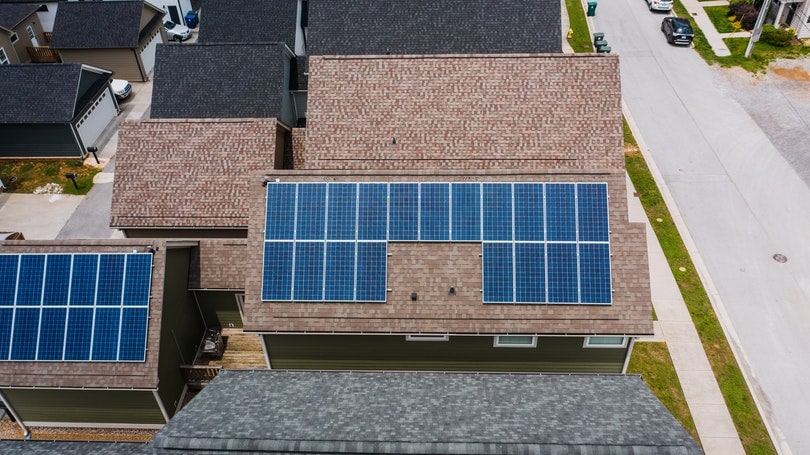
8. Solar Manufacturing Produces a lot of Pollution
One of the arguments against solar is that the process of creating the panels creates more pollution than using the panels actually save. If this was true, using solar panels would be worse for the environment than fossil fuels.
Luckily, this isn’t true at all. If a solar panel system met only half of the needs of a household, it would save about a ton of air pollution over its lifespan. Conversely, solar manufacturing only produces a small number of pollutants, plus, the panels themselves are typically recycled once they reach the end of their lifespan.
If you’re worried about the environment, utilizing solar panels will help reduce your carbon footprint by quite a bit.
9. Solar Panels Require a lot of Maintenance
While solar panels may seem complicated, they don’t require any regular maintenance to work properly. They have no moving parts and don’t really require owners to do anything.
Many people opt to hose them off once or twice a year, especially if they live in a dusty area. However, there are also quite a few people that don’t do any of this and simply let the rain wash off their panels. Even if you never cleaned the panels, the efficiency would only drop a tiny bit.
Of course, if any large debris falls on the panel, it is recommended that you remove them. You don’t want to leave large tree branches on the panels, for instance. Most panels do have a monitoring system that allows you to see if there is a drop in production, which may indicate that something is on the panels.
Often, installers can also tell if your panels have decreased in productivity. In this case, they may know about the problem before you even do!
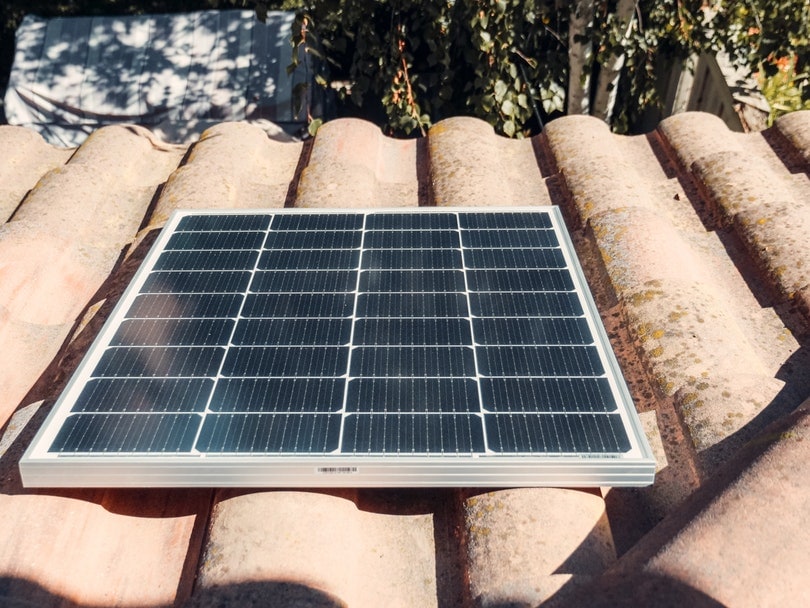
Related Read: 9 Solar Energy Facts & Statistics and Data

Conclusion
Most misconceptions about solar panels are based on outdated information. Sure, solar panels were expensive when they first came out, but they are much more inexpensive now. They have also become more efficient and don’t require much maintenance.
In all honesty, solar panels are a great option for anyone looking to get some clean energy going in their home. It is one of the most effective energy systems, and it works almost anywhere.
See also: 13 Recycling Myths and Misconceptions
Featured Image Credit: ulleo, Pixabay
Contents
